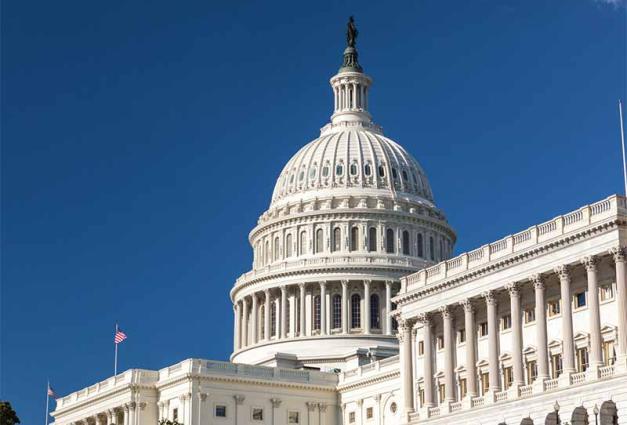The Consortium of Social Science Associations (COSSA) recently held their Science Policy Conference and Social Science Advocacy Day in Washington, DC. This annual event brings together scholars, society members, and other stakeholders in the social sciences for discussions about federal social science policies. The event culminates in an afternoon of meetings with congressional staffers, where attendees advocate on behalf of the social science community for the continued federal funding of the social sciences.
John Paul Wilson, an assistant professor of psychology at Montclair State University in Montclair, NJ, attended the conference as a representative of SPSP. We asked him to share his thoughts and takeaways from the event, and to offer some tips on how to effectively speak with local and state government officials on matters affecting the social sciences.
I was teamed up with fellow members of the New Jersey delegation (other delegations met with members representing their states). We spent our day meeting with staffers in six of New Jersey’s twelve congressional offices, including Chairman of the House Appropriations Committee, Rodney Frelinghuysen. These meetings offered us the opportunity to explain the importance of the research that we and other social scientists do to the people who will shape the appropriations bills that we rely on to do our work.
As an early career social psychology professor, I spend most of my time in the classroom and in the lab, and I don’t necessarily think very much about effectively communicating our science to government officials. This experience reminded me how many people rely on us to do just that. One of the things that COSSA leaders strongly encouraged us to do during our meetings was to offer our expertise to Members of Congress. We were, of course, there to emphasize the importance of social science funding, and one effective way of doing so is to be good sources of information for government leaders. When Congress debates new policies in STEM education, drug policy, policing, and environmental protection, among many other topics, we can make ourselves available to provide expertise on such policy decisions.
I was also heartened to see that the Science Policy Conference included a focus on “Reestablishing Trust in Social Science and Data.” We want to be good advocates for our science, and it will be increasingly important for transparency to be a central component of this advocacy. Whether we like it or not, decision-makers in government are becoming aware of the reproducibility issues that have gained so much of our attention in recent years. Some organizations and agencies are even leveraging these issues to make new demands that can easily be interpreted as anti-science and anti-progress. Regardless of the intentions underlying these demands, the onus will be on us, the scientists, to improve the quality of our work so that we maintain the trust of the public and of skeptical policymakers.
Overall, this was a great experience. I encourage all of my colleagues to remain aware of government decisions that affect us and our ability to do the work that we love.
Here are some tips for speaking to government officials about the matters that are important to you:
- Know who your representatives are and which committees they serve on.
- Contact them! Call their office to request a meeting, or request the email address of their scheduler. You may be able to have a face-to-face meeting with a congressperson or one of their staffers.
- Highlight how your research (or other social science research) can improve lives.
- Try to relate to your representative’s local interests. Focus on impacts to local universities and the local economy.
- Be prepared to discuss your research in a way that is accessible to non-specialists.
- Offer to be a resource; make it known that you are an expert and can provide valuable assistance to your member of Congress in the future.
- Tag your representatives in social media comments. This can be a great way to increase the visibility of your advocacy efforts.
- Take advantage of the resources provided by COSSA. They publish an Advocacy Handbook and many other helpful resources for engaging with the federal government.




